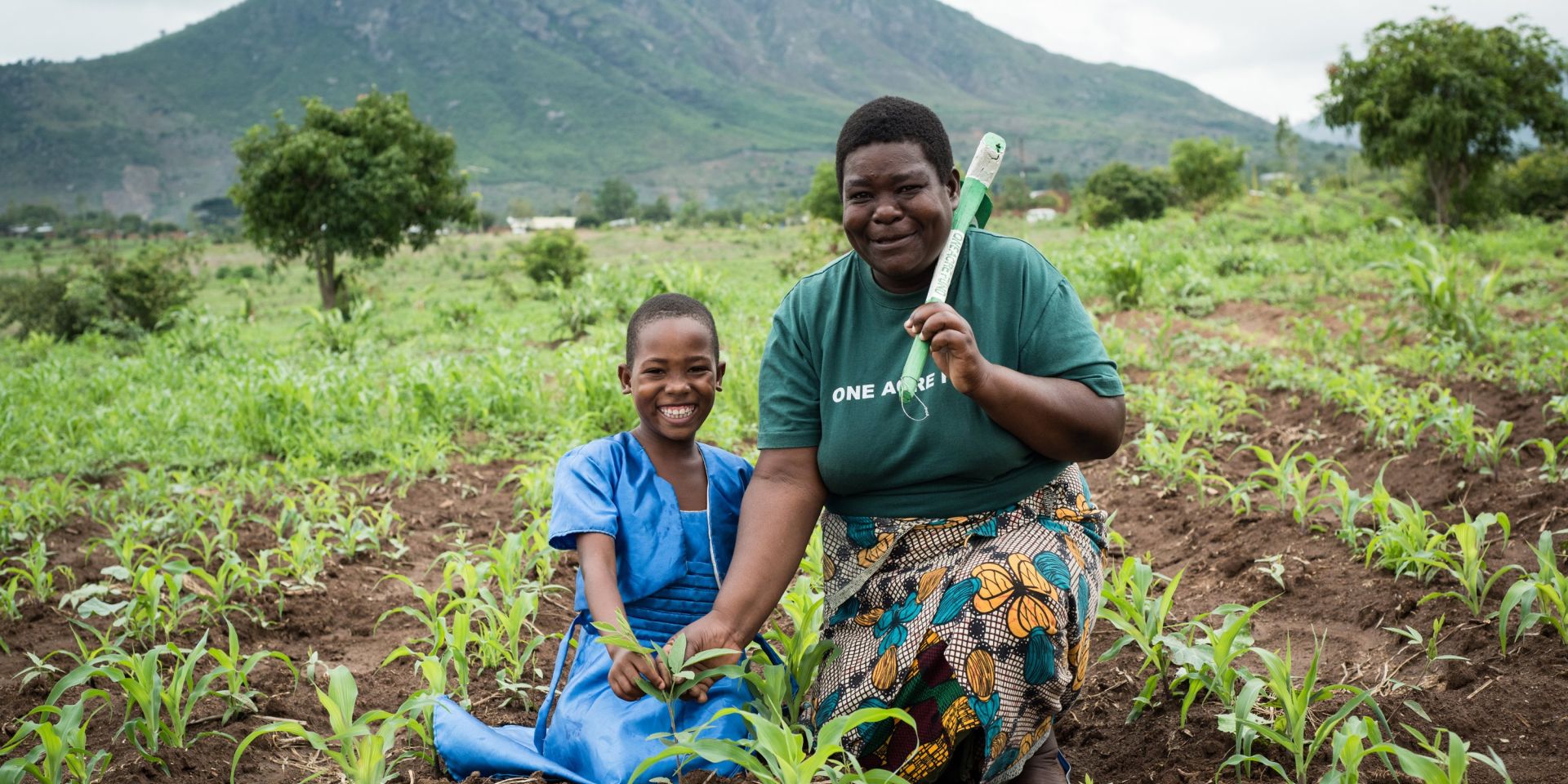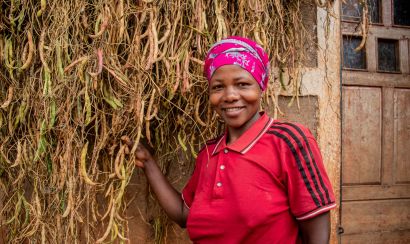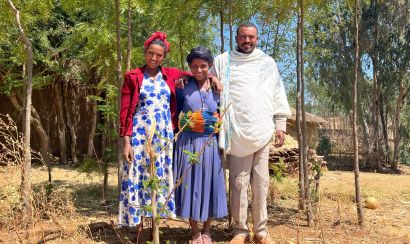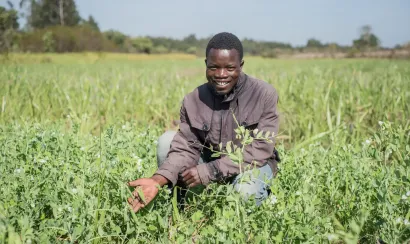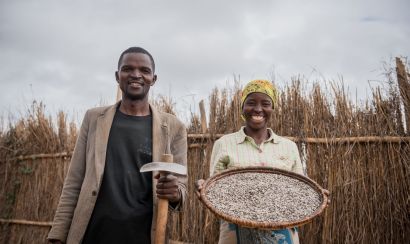A New Partnership for Africa's Smallholder Farmers
Pictured above: Promise Philips with her mother Yvonne in Chiradzulu District, Malawi
The Challenge
The world has seen massive increases in crop yields since the 1960s, when modern farming techniques became ubiquitous across much of Asia and the Americas. Humanity has made large strides toward reducing hunger on a global scale.
But in Sub-Saharan Africa, millions of smallholder farmers are still locked in annual cycles of deprivation and hunger because they’re not able to harvest enough crops to feed and support their families throughout the year. Low rural population density, large variations in agro-ecological conditions, political and trade barriers, infrastructure challenges, a spectrum of cultural differences, and changing climates have all made it difficult to increase widespread farm productivity and lift populations out of poverty.
This complex atmosphere means that there may not be a single, blanket solution to Sub-Saharan Africa’s hunger problem. But that doesn’t mean that a new revolution of ample harvests and widespread food security isn’t possible. By customizing agricultural systems to each region’s unique working environment, we can still unlock the yield gains that have eluded millions of smallholder farmers thus far.
The New Partnership
Now, One Acre Fund and the Global Innovation Fund are beginning a new partnership that will build out tailor-made regional solutions for smallholders across six countries in Sub-Saharan Africa. The Global Innovation Fund, a nonprofit investor that supports scalable, innovative solutions for some of the developing world’s biggest problems, has awarded One Acre Fund with a $15 million grant to carry out this work over the next four years. We expect this collaboration to create $37 million in new income for farmers over four years, with another $65 million generated in subsequent seasons as more and more smallholders adopt new farming methods and the impact of our program spreads.
We already know from practice that farmers base their decisions about what crops to grow and what techniques to use on their environments—what works in a mountainous region of Rwanda may be completely inappropriate for the lowlands of Malawi. Now, we’ll take a deeper dive into how localized differences can affect food production. One Acre Fund’s product innovations team is running hundreds of trials to find out “what works” at the local and regional level—what crop varieties grow best in certain areas, which products farmers are most likely to adopt based on local customs and markets, and how we can make customized recommendations that fit farmers’ varying needs.
After each trial is proven effective, we’ll then scale it up to reach as many of the farmers in One Acre Fund’s program as possible. We’re also planning to extend our impact beyond the organization’s network of clients. As One Acre Fund grows, we’ll use its position as a market creator to partner with seed and fertilizer companies, government extension services, and other entities to help promote the best tools and practices across each region—both for farmers enrolled in its program and others who aren’t. Ultimately, we could help drive changes in farming across entire countries.
One Acre Fund’s goal is to directly enroll more than 1 million farmers by 2020, with many more experiencing the impact of its program indirectly through partnerships and extension work. The collaboration with the Global Innovation Fund is just one step toward eliminating hunger in Sub-Saharan Africa. But by rigorously tailoring “what works” in each country, using farmer networks to drive new technologies and practices, and proactively encouraging rest-of-market adoption, we can together play an anchor role in bringing more farmers the tools they need to grow their way out of hunger and poverty.
